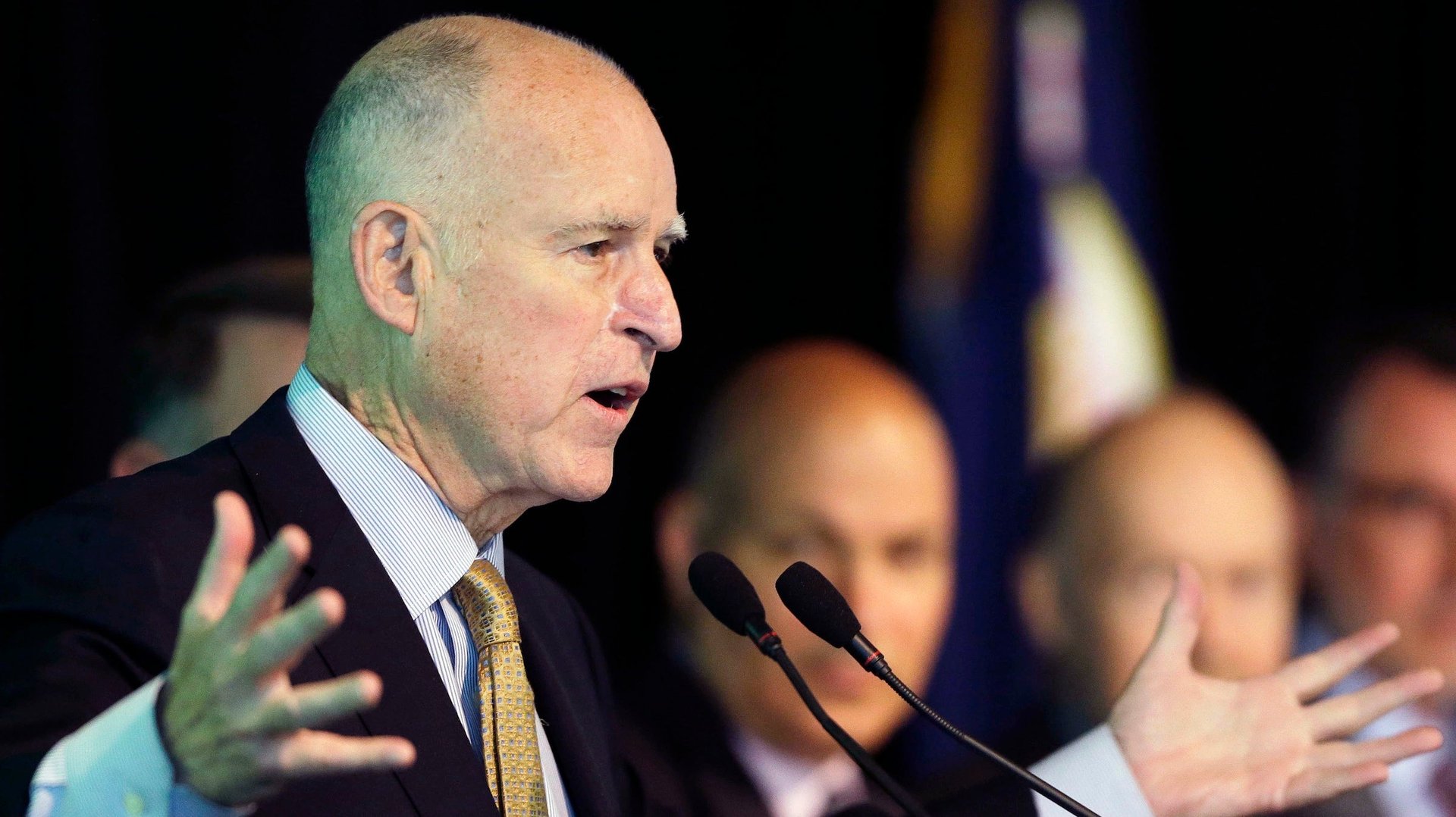Greens are blue about Brown raiding their gold to keep California in the black
“Governor Moonbeam” has definitely left the building.


“Governor Moonbeam” has definitely left the building.
Jerry Brown’s spacey-techno New Age musings during his first stint as California governor in the 1970s earned him that enduring sobriquet. Brown, who dated singer Linda Ronstadt and refused to live in the governor’s mansion, pushed then-exotic technologies like solar energy, and proposed that the state launch its own satellite.
Now, in his third term as governor, Brown is showing himself to be a born-again pragmatist, at least when it comes to environmental politics.
Yesterday in Silicon Valley, Brown joined 500 scientists calling for action on climate change. “This is not just about science, this is about activism,” said Brown. “This is an important challenge, cause and undertaking. We can do it, but we have to do a lot more than we’re doing now.”
His speech rekindled the anger of environmentalists over Brown’s latest state budget, announced earlier this month, which proposes to raid $500 million in revenues from California’s new carbon market. That money, earned from the auction of pollution allowances to industrial companies, is supposed to be used to promote renewable energy, energy efficiency and other programs to cut California’s carbon emissions, as well as help poorer neighborhoods cope with pollution.
Brown, however, wants to borrow the money to help plug a $1.8 billion hole in the state’s budget. He claims programs to deploy the cash for its intended purpose aren’t ready to go; environmentalists say there are existing projects it can be spent on. To Brown’s opponents, these look suspiciously like the type of budget shenanigans he pledged to end when he was elected in 2010.
With the US’s chances of enacting a national carbon market nil after Congress failed to pass such a scheme in 2010, and with the European cap-and-trade system in disarray, environmental and business interests are closely watching the California experiment, which was launched in November. So far, it has gone smoothly. On Jan. 1, 2014, the state will link its carbon market to Quebec’s, allowing carbon credits bought in one to offset emissions in the other. On May 3, California held its third auction for credits (pdf), raising $284 million.
But proponents of the scheme fear that after successfully vanquishing business opposition to California’s carbon market, Brown will endanger its success in an internecine battle with his erstwhile allies in the environmental movement. “The governor is playing a dangerous game that could wreck California’s push toward clean energy,” Ryan Young, an attorney for the Greenlining Institute, a California advocacy group, in a statement.